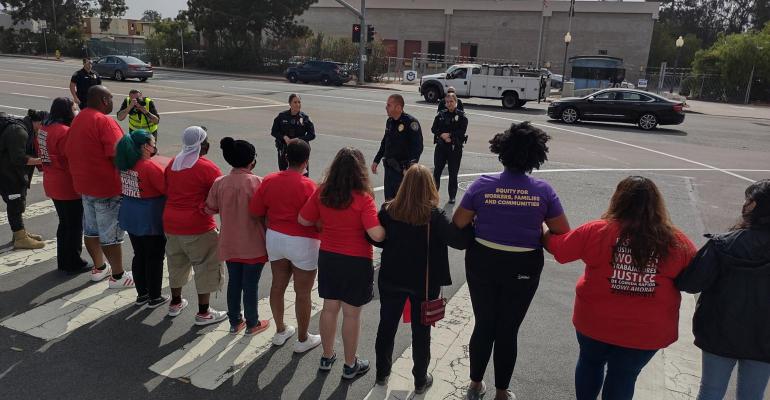The California Senate and state Assembly passed Assembly Bill 257 on Monday — also known as the Fast Food Accountability and Standards Act or the FAST Recovery Act — which would create a state-run fast-food council that would set standard wages, working hours and conditions for employees of quick-service chains with 100 or more locations nationally.
Though the FAST Recovery Act initially failed in the Assembly, after some amendments and a passage the second time around, the legislation now heads to Gov. Gavin Newsom’s desk for signing. The new version of the bill tweaked several measures of the original legislation to be a bit more pro-business, including a minimum wage ceiling off $22 per hour for 2023. Newsom has not indicated if he would pass the bill, and it was initially criticized for having “significant ongoing costs” by the state Department of Finance.
“Creating a stakeholder driven council ensures that all voices at the table are heard and considered,” state assemblymember and coauthor of the original bill, Chris Holden, said in a statement. “This innovative template helps us do better to foster improved working environments for all Californians.”
If the bill is passed by Gov. Newsom, the fast-food council would be established within the Department of Industrial Relations, and would consist of 10 members appointed by the Governor. Their term would last until Jan. 1, 2029, and the council would establish statewide standard working conditions for fast-food workers, subject to a petition signed and approved by 10,000 state fast-food workers.
The council would also have the authority to “issue, amend, and repeal any other rules and regulations” that might contradict its working standards, and would conduct a full review of each fast-food establishment in California that meets the requirements and definition under the bill’s jurisdiction at least once every three years. Larger cities in the state would also be required to create their own local Fast-Food Councils to provide regional recommendations to the larger state council.
The FAST Recovery Act has been met with pushback from the business community, which has criticized the bill for creating untenable standards for the restaurant industry, including the possibility of a $22 statewide minimum wage, which could raise menu prices by 20%, critics of the bill told the Los Angeles Times.
State Republican lawmakers have come out against the bill, saying that it gives “unchecked power” to this fast-food council, which would be appointed by the Governor’s office, and would include both workers and industry representatives.
Although the council would specifically target larger chains, the International Franchise Association argues that many franchisees of these chains are smaller businesses and it would be just as challenging for them to keep up with these new standards, as it would be for an independent restaurant operator.
“The bill creates an arbitrary standard for one sector of workers while punishing small business owners and their customers,” the International Franchise Association said in a statement. “Franchising has opened the door for hundreds of thousands of entrepreneurs to pursue their dreams and millions of workers to establish a career, but this bill stands to break all that down while raising prices for Californians and forcing restaurants to close their doors. Gov. Newsom should stand up for local businesses, the people of California, and responsible government, and veto this legislation.”
Contact Joanna at [email protected]
Find her on Twitter: @JoannaFantozzi





